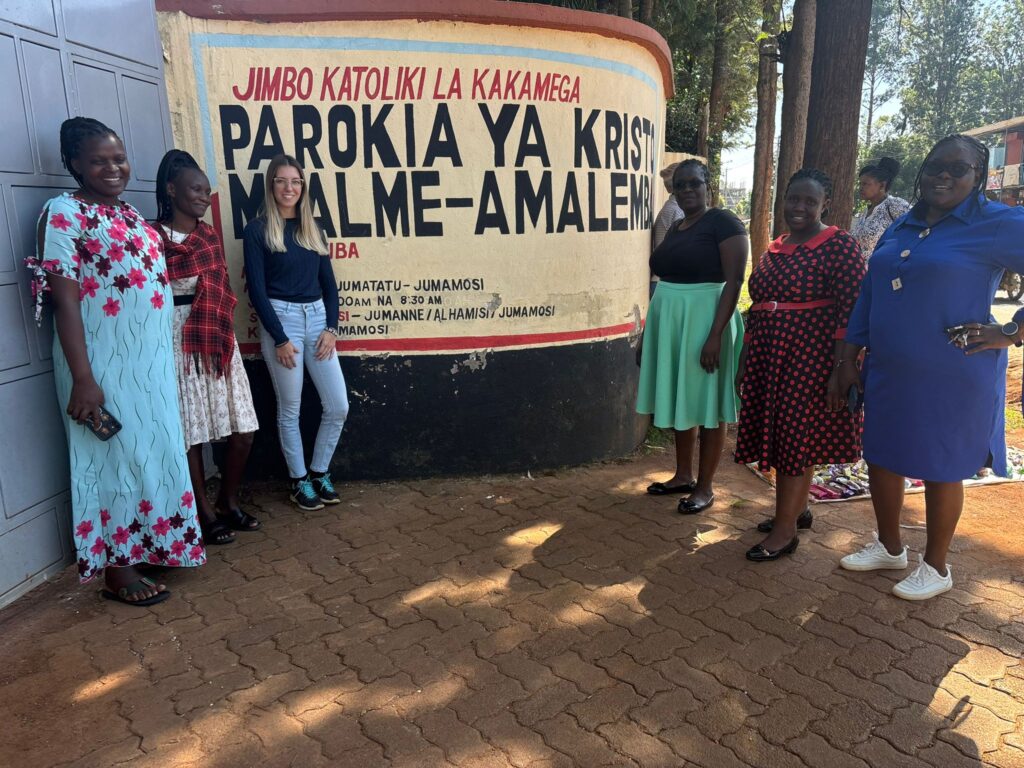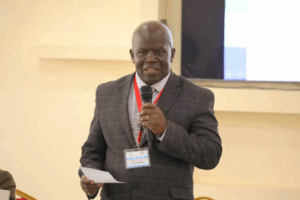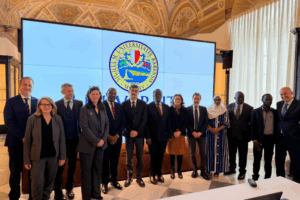
Positioning the University for Global Visibility Through Publication in High Tier Journals: Dr. Rose Opiyo’s Journey
When MMUST intensified its campaign against predatory publishing, an act dubbed internally as ‘Dr. Kanda’s Dustbin,’ for many scholars, the new directive felt restrictive. But for the Associate Dean of the School of Education-Dr. Rose Opiyo, it was a challenge, a call to publish her work in the best global journals. She made a personal commitment to publish exclusively in reputable, peer-reviewed journals, even if it meant following a far more demanding path.
Her publication in ‘Frontiers in Educational Psychology,’ https://www.frontiersin.org/journals/education/articles/10.3389/feduc.2023.1086706/full was the spark that ignited her successful grants. The article was read by reputable international scholars across Europe, including Prof. Claudio Longobardi of the University of Turin and Prof. Sofia Maskoukou of the University of Rome. Their deep engagement during the peer review process evolved into thoughtful academic conversations, a proof that true peer review is not a barrier, but a bridge. The scholarly exchange that began in manuscript margins evolved into substantive conversations about methodologies, shared interests, and collaborative possibilities.

Prof. Claudio Longobardi and Dr. Rose Opiyo in Portugal.
The bridge became a partnership when Dr. Opiyo met Prof. Longobardi in person during the ISSBD global conference in Portugal. Listening to his presentation on Teacher–Student Relationships, she found remarkable alignment with her own research passions. Their conversations over a cup of coffee turned into shared reflections on research purpose, community impact, and future collaborations. In Portugal, they transitioned from possibility to commitment. The duo discussed concrete collaboration plans, identified their institutions’ complementary strengths, and mooted sustained partnership. The relationship was cemented not through formal agreements alone, but through mutual recognition that collaboration could amplify individual impacts.
The meeting resulted in tangible fruits through the Erasmus+ KA 171 Academic Mobility Programme. In early 2025, MMUST sent two members of staff and four students to the University of Turin for an immersive academic experience that broadened their horizons. This also strengthened their professional identities, enabling an Italian doctoral student Ms. Beatrice Ragaglia to visit MMUST to conduct comparative research on how Kenyan and Italian parents socialize 7-11 year-old children emotionally. Her research will contribute to both Italian and Kenyan scholarly discourse, offering insights into cultural dimensions of emotional socialization with significant implications for educational practice.

The Italian doctoral student Ms. Beatrice Ragaglia during her field work.
These early exchanges laid the foundation for a bigger grant: RECLAIM, an Intra-Africa Academic Mobility Scheme, now in its final stages of securing nearly 100 million KES under the EU’s NDICI-2024-MOBAF programme. Under Dr. Opiyo’s stewardship, MMUST leads a consortium that includes the University of Ghana, Buea University in Cameroon, and the University of Botswana, with technical support from the Universities of Turin and Rome. This is evidence of MMUST’s growing reputation as a trusted anchor for large-scale, multi-institutional research initiatives.
The other members of the team include, the Director-DIAL- Dr. Umulkher Ali, the Director of Research and Postgraduate Support-Prof. Francis Orata, Prof. Catherine Aurah, the Director of Postgraduate Studies- Prof. Kennedy Bota; Dr. Caroline Wekullo and Ms. Stella Kabuga. Together, they have engineered a project that is set to redefine Africa’s academic mobility landscape and advance research on one of the continent’s most urgent issues-climate change. This diversity ensures RECLAIM addresses challenges through an integrated lens, recognizing the interconnections between education, economic development, environmental sustainability, and social resilience-Kenya’s Work package: Climate-Focused Educational Psychology.
Reflecting on this journey from one article to a 100 million KES project reveals profound lessons. High-quality publications make scholars visible internationally. Peer review in excellent journals functions as professional networking which can lead to potential partnerships. MMUST’s stance against predatory publishing has created a culture of research integrity and excellence that set the stage for global recognition. By prioritizing quality over quantity, the University indicates to international partners that its scholars have the ability and capacity to produce credible and impactful research outputs.
By Linet Owuor



